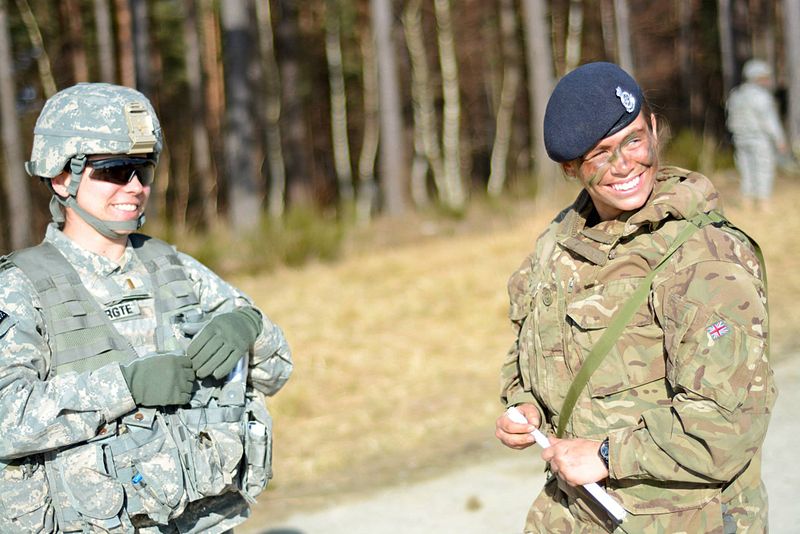Today we welcome a guest post by Lorna McGregor, a Commissioner at the Equality and Human Rights Commission. Lorna’s post coincides with the release of the Equality and Human Rights Commission’s report on the UK’s human rights challenges and successes as part of the 2017 Universal Periodic Review, where the UK’s human rights record will be internationally scrutinised.
It has been a bad year for human rights. The rise in overt racism and intolerance is the clearest sign of this. Where human rights have received airtime, they have often been portrayed negatively. This is illustrated by years of pushback on the European Court of Human Rights and the Human Rights Act and frivolous stories of human rights being about cats and speeding laws.
These stories risk characterising human rights as ‘part of the problem’. However, human rights could not be more important. Moving into 2017, it is vital that we become more effective at championing human rights.
To do this we have to reclaim what human rights are and why we need to protect them. This year we have celebrated the fiftieth anniversary of two ground-breaking international treaties – the International Covenant on Civil and Political Rights and the International Covenant on Economic, Social and Cultural Rights. Rights included in these treaties are the right to education, the right to adequate food, clothing and housing, the right to freedom of thought, conscience and religion, the right to health, the right to life, and the right to work and social security. They are rights that matter to every one of us.
A negative picture
Too often human rights are presented in a narrow way which risks overlooking their fundamental importance to us all. Although they do not seem it at first glance, so many stories in the media are actually about how human rights law has protected us or where the government has failed to meet its obligations.
For example, the duty to investigate deaths and allegations of torture and other forms of ill-treatment led to the Hillsborough inquests, the investigations into child abuse in Rotherham, and to findings of responsibility where the police failed to treat calls on domestic violence seriously enough.

The Hillsborough inquests were brought about by human rights laws
The effects of social security changes on people with disabilities, child poverty and families living in temporary accommodation are all stories about the failure to respect our international human rights obligations. The inquiry into child sexual abuse, and the uncovering of ill-treatment in care homes by investigative journalists, are stories about the prohibition of torture and other ill-treatment. Even the critics of human rights are protected by the human right of freedom of expression.
When we move beyond the negative discourse, we see that human rights are there to protect all of us. But they are about more than that, they are also about shared ideals and values. Human rights are universal, indivisible and interdependent, so signing up to them does mean that we cannot deport people if there is a risk that they will be tortured or ill-treated abroad – even if they are convicted criminals or suspected terrorists. This is right. If our values prohibit torture, we should not facilitate torture by others.
Similarly, if there is a credible suspicion that members of our armed forces have been involved in torture or unlawful killings abroad, they should be investigated. My colleagues Prof Noam Lubell and Dr Daragh Murray have argued persuasively that accountability does not threaten the military but rather enables the ‘armed forces [to] publicly demonstrate their integrity and professionalism – and ensure the public’s trust’.

Moving forward
If we are to reclaim human rights, we need to ensure they move beyond legal treaties and into people’s lives. We need our political leaders to talk about the importance of human rights rather than reducing them to something cheap and meaningless. In communities, we need to be talking about why human rights matter.
2017 is an important year for government accountability for human rights. In 2016, the United Nations issued a series of reports (see here, here, and here) identifying where the UK is failing and more will be issued next year including the Universal Periodic Review. Priority issues include the rise in hate crime, the impact of social security reforms on people’s lives and the overuse of stop and search powers against ethnic minorities
We need to ensure that these UN recommendations do not gather dust in reports but are implemented so that human rights play a strong role in changing peoples’ lives. Human rights are not part of the problem. The problem is that they are not being fully respected and it is our job to make sure that they are.
- Read the full Equality and Human Rights Commission repot
- Click here for our new video on the Human Rights Act
- For the Equality and Human Rights Commission’s report ‘Healing Divided Britain’ click here.







